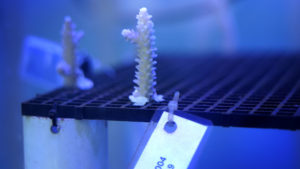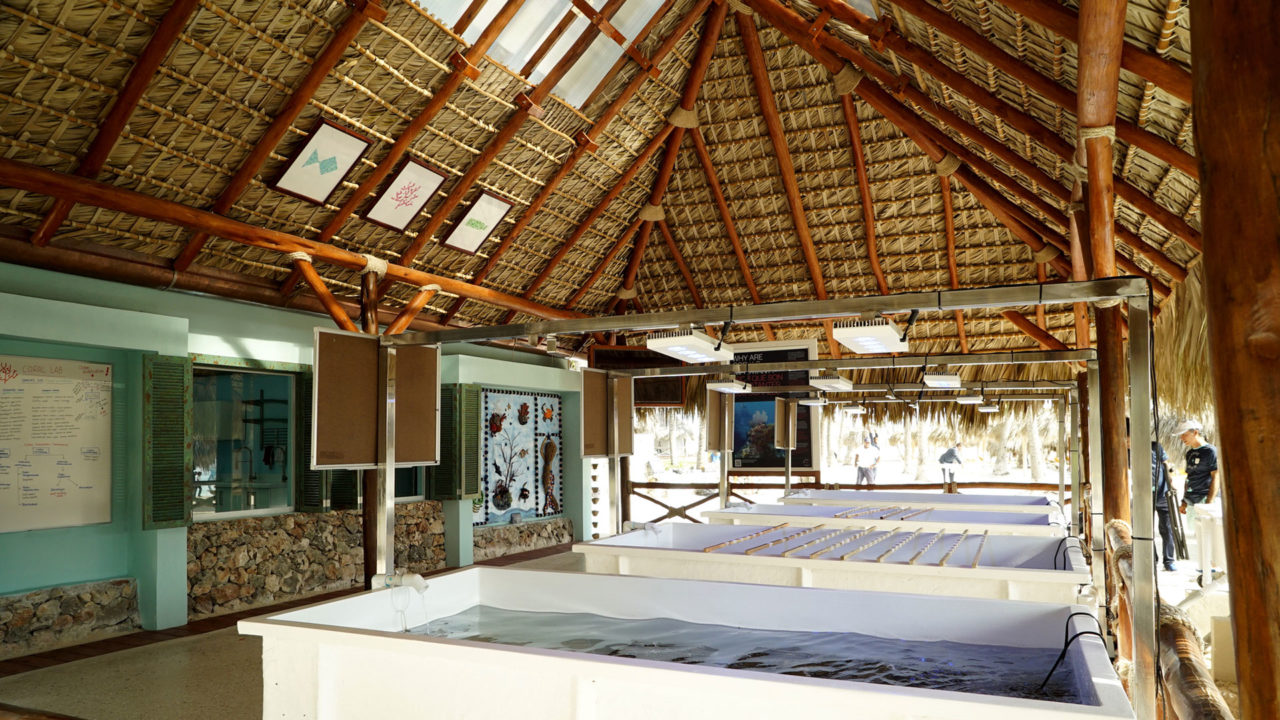Iberostar Group marked this past June 8, World Oceans Day, with the opening of its newest Coral Lab in the Dominican Republic. The goal of this initiative is to preserve Caribbean reefs and oceans around the world. This action is part of the hotel chain’s Wave of Change movement.
The laboratory was created to contribute in the protection of marine life in the face of the global increase in temperature, as well as to counteract stony coral tissue loss disease (SCTLD), a pandemic that is devastating coral reefs by leaps and bounds. For the construction of this Coral Lab, Iberostar recruited members of the scientific community, the Dominican government and several non-governmental organizations (NGOs), among others.
This center, although operating under rigorous scientific standards, is open to Iberostar hotel guests and visitors, as part of Iberostar Group’s awareness and education plans. In addition, children can also visit the Lab and learn about the environment through the Star Camp entertainment program.
What Threatens Our Coral Reefs?

Stony coral tissue loss disease had its first outbreak in Central Florida in 2014. This event left a ghostly trail of bleached coral reef remains. The phenomenon has already spread to Mexico, the United States Virgin Islands, St. Maarten and also to the Dominican Republic, where it arrived suddenly in March.
Dr. Megan Morikawa – Director of Sustainability at Iberostar and a marine biologist with a doctorate in coral restoration – witnessed the appearance of this white underwater plague together with her team, while finishing preparations for this new coral reef laboratory in the Caribbean country.
Facilities at Iberostar Coral Lab

The laboratory will initially house 10 species and 180 individual corals (most similar facilities only house a few species). The premises will act as a refuge for the threatened coral reefs of the Caribbean. It’s basically a genetic bank, protected against the increasingly devastating hurricanes on the high seas, where most reefs live. In addition, it extracts salt water from wells, not from the ocean. This protects the Coral Lab from powerful fast-spreading diseases that affect corals, such as SCTLD.
Among its features, the laboratory has four 1,200-liter tanks, another four with a 500-liter capacity and four control systems that will allow researchers to accurately simulate future marine conditions. This will make it possible to develop heat-resistant strains of coral, which could one day replenish the weakened reefs that support entire populations of fish and protect coastal livelihoods.
Iberostar plans to open more facilities like Coral Lab to protect coastal health in other locations in the next two years and build a series of nurseries on the high seas.




